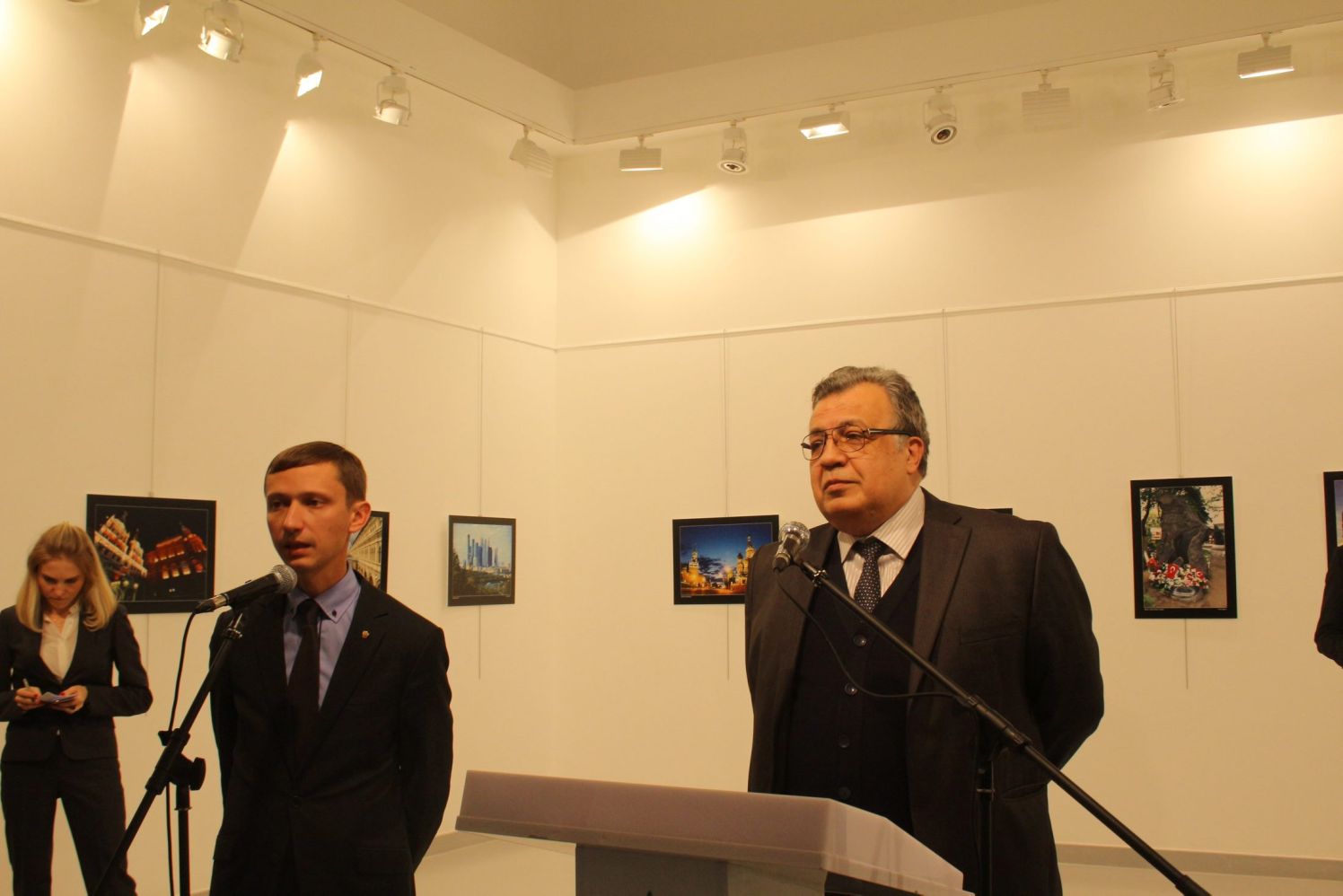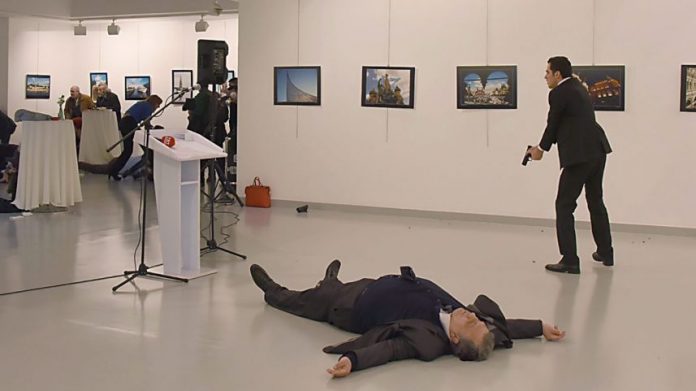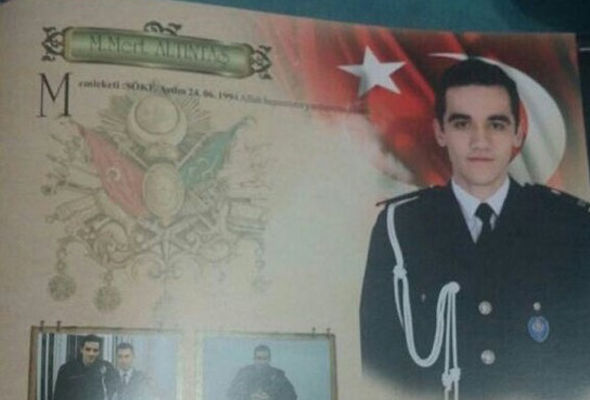In a stunning act of political violence, a gun-wielding man in a black suit and tie shot and killed Russia’s ambassador to Turkey Monday in what the assassin described as an act of revenge for Russia’s bombing of civilians in Aleppo, Syria.
Video captured at the scene shows the gunman shouting “Allahu akbar,” the Arabic phrase for “God is great,” as well as the Arabic words for “Remember Syria! Remember Aleppo!” as the ambassador, Andrey Karlov, lies bleeding on the floor next to him. The fallen diplomat had been speaking at the opening of a photographic art exhibition in the capital city of Ankara, titled “Russia through Turks’ eyes.”
Russia’s Interior Minister Suleyman Soylu identified the gunman as Mevlüt Mert Altıntaş, a 22-year-old Turkish off-duty police officer who has been with the riot police squad in Ankara for the past 2 1/2 years.
He was subsequently shot and killed by Turkish security forces responding to the incident, which Russia’s Foreign Ministry is now calling a “terrorist attack.”
In reality, Russian and Syrian government airstrikes on the city of Aleppo, which has been the central front in the war for the past year, have targeted civilian neighborhoods, schools, hospitals, and humanitarian aid convoys, in addition to ISIS- and rebel-held targets. According to the UK-based Syrian Observatory for Human Rights, over 9,000 people, including nearly 4,000 civilians, have been killed in one year of Russian air raids in Syria.
Turkey is also involved in the war in Syria — although not on the same side as Russia. Turkey is a NATO ally and part of the US-led fight against ISIS in Iraq and Syria. It also supports some rebels who are fighting to oust the Assad regime.
Both Putin and Erdogan have issued statements saying the shooting was aimed at disrupting Turkish-Russian relations, with Erdogan stating that “both the Russian and Turkish administrations have the determination not to fall for this provocation.”

But it is much too soon to know what impact, if any, the assassination of the Russian ambassador will actually have on Turkish-Russian relations, or Russia’s policy in Syria. Indeed, the shooting comes just one day before Turkey’s foreign minister was scheduled to fly to Moscow for a meeting with Russian and Iranian diplomats on the situation in Syria.
What is certain, though, is that this criminal act makes an already extremely complicated situation even more fragile — and even more dangerous.







